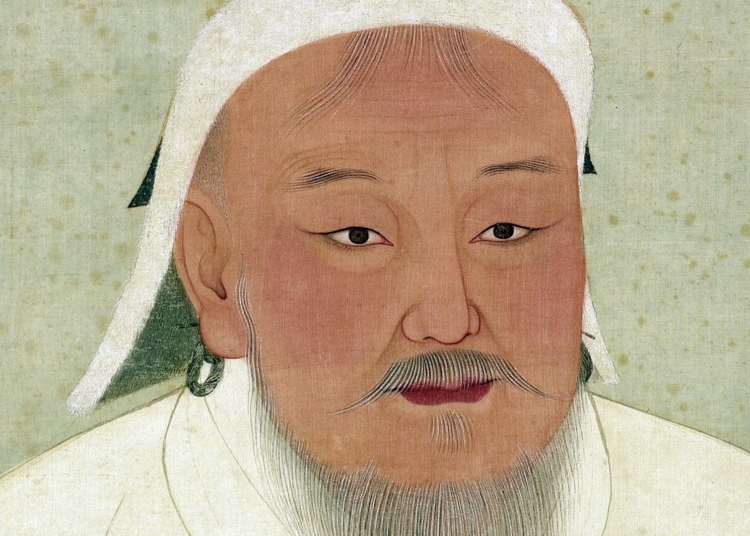Genghis Khan, born as Temujin in 1162, was the founder of the Mongol Empire and one of history’s most influential leaders. This article explores his rise to power, the challenges he faced, and the impact he had on the world. Despite a difficult early life, Genghis Khan managed to unify the Mongolian tribes by the age of 20. He then unleashed the Mongol Horde, a highly disciplined and skilled military force that rapidly expanded the empire through conquests and destruction. Genghis Khan’s reign introduced a unified legal code, encouraged trade, and created a relatively meritocratic society. Although his methods were brutal, his legacy endured through the fragmentation of the empire and the accomplishments of his descendants. Genghis Khan’s leadership and determination left a lasting impact on world history.
Genghis Khan: Unleashing the Mongol Horde and Forging an Empire
Introduction
Genghis Khan, born as Temujin in 1162 in what is present-day Mongolia, was the founder and first Great Khan of the Mongol Empire, which became the largest contiguous empire in history after his death. Genghis Khan’s rise to power and subsequent conquests unleashed the unstoppable force known as the Mongol Horde, forever altering the course of world history. This article delves into the life of Genghis Khan and the impact he had on the world.
Early Life and Struggles
Genghis Khan’s early life was marked by hardships and struggles. After the murder of his father when he was just nine years old, Temujin faced numerous challenges, including being abandoned by some of his father’s followers. However, through sheer determination and leadership skills, he managed to unify the Mongolian tribes under his rule by the age of 20.
During this period, Genghis Khan faced countless conflicts, both internal and external. He had to deal with rival clans, tribal feuds, and aggression from neighboring kingdoms. These difficult circumstances molded him into a fearless and ambitious leader, shaping his grand vision of establishing a powerful empire.
The Mongol Horde is Unleashed
Genghis Khan’s military strategies were revolutionary for their time. He organized his soldiers into the famed Mongol Horde, which were known for their unparalleled horsemanship and archery skills. Genghis Khan understood the importance of a well-disciplined and cohesive army, capable of swift maneuvering and adaptation on the battlefield.
Under Genghis Khan’s leadership, the Mongol Horde achieved numerous military victories and rapidly expanded their territories. From China to Persia, the Mongols left a trail of destruction and conquest unmatched by any other empire in history. Cities that refused to surrender were razed to the ground, while those that submitted were absorbed into the Mongol Empire.
Genghis Khan’s Legacy
The impact of Genghis Khan’s reign extended far beyond his military conquests. He introduced a unified legal code, the Yassa, which promoted justice and order within the empire. Additionally, Genghis Khan encouraged trade and communication along the Silk Road, benefiting both the Mongol Empire and other civilizations.
Furthermore, Genghis Khan’s egalitarian policies created a relatively meritocratic society, where individuals were judged by their skills rather than their social status. This allowed talented individuals from conquered territories to rise through the ranks and contribute to the growth of the Mongol Empire.
However, it is essential to acknowledge that Genghis Khan’s methods of conquest were brutal and devastating. Entire populations were massacred, and cities were left in ruins. The Mongol Empire thrived under its military might but left a legacy of fear and destruction in its wake.
The End of an Era
Genghis Khan’s reign came to an end in 1227 when he died during a military campaign against the Western Xia. His death marked the beginning of a power struggle for succession among his sons and grandsons. Eventually, the Mongol Empire was divided into four major khanates, each led by one of Genghis Khan’s descendants.
Despite the fragmentation of the empire, the influence of Genghis Khan’s legacy endured. His descendants extended the reach of the Mongol Empire, with his grandson Kublai Khan establishing the Yuan Dynasty in China, one of the most prosperous periods in Chinese history.
Conclusion
Genghis Khan was undoubtedly one of history’s most influential and formidable leaders. He united the Mongolian tribes, unleashed the unmatched power of the Mongol Horde, and forged an empire unlike any other. His impact on the world, although shaped by violence and conquest, cannot be underestimated. Genghis Khan’s legacy stands as a testament to the transformative power of vision, leadership, and determination.













